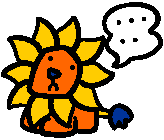
------------------------------------------------------
#59 農民は害獣を殺さざるを得ないのではないでしょうか?
------------------------------------------------------
この質問に対しては単に、ベジタリアンの食生活を採用することによ
って殺される害獣の数は減るし、殺すこと以外の害獣対策の方法もある
と言う答え方をすることもできます。しかし、この問題は興味深いもの
なのでもっと十分に答えることにします。
おそらくこの質問者がこれに続けて言いたいのは、どうして食べ物を
作る為に害獣を殺すことは良くて、食べ物にするために動物を殺すこと
がいけないのか、ということでしょう。その点において、この質問は、
#57と似ています。#57と異なるのは、害獣は意図的に殺されてい
るので、#57の様に、動物の死が偶発的なものであるとは言えない点
です。
この議論に対しては二通りの答え方があります。ひとつは、こうした
場合に殺すことは正当化できるとするものです。もうひとつは、殺すこ
とは必要ではなく、避けるべきだとするものです。この二つを順番にみ
ていきましょう。
私たちの道徳体系は一般に、他者に危害を加えてはいけないという原
則に対し、例外を認めています。その主な例外の一つとして自己防衛が
あります。私たちにはもし、自分が脅威にさらされた場合、実力行使に
よって、その脅威に対抗する権利があります。
害獣が私たちの、食べ物の供給や、住む場所や、健康に対する脅威と
なっている度合いに応じて、私たちが自分を守る事も正当化されるわけ
です。実力行使をする際には、適切な手段をとる責任があるわけですが、
時には脅威となる動物の命を奪わざるを得ない場合もあります。
こうした自己防衛の主張を用いたところで、やはり害獣を殺すことは
間違っていると思われるかもしれません。しかし、少なくとも殺す害獣
の数が少なくてすむという点において畜産業よりも作物農業を選ぶべき
であると言うことはできます(なぜ少なくてすむかという理由について
は#57に書かれています)
しかし、こういった道徳上の議論に影を投げかけるかもしれない、主
張もあります。それは、殺虫剤や、化学肥料や、除草剤の使用は単に不
必要であるばかりではなく地球の環境を著しく損なうので避けるべきだ
とする意見です。まず、最初に必要性という問題をとりあげ、その後に
環境破壊の問題について考えてみましょう。
デビッド・カウレス・ハマーは、次の様に書いています:
「人間は何千年にもわたって、自然な生態系に根ざした農業をやってき
た。その中では、害獣となる可能性のある動物の個体数は、自然に調
整されていた。こうした認識が現代の有機農業や、持続可能な農業の
探求につながっている」
マイケル・W・フォックスは、こう書いています:
「総合的な害虫や害獣への対処法や、自然界での害虫の捕食者を保護す
るために農場のまわりの自然を保全するといった方法は、殺虫剤を使
い続けるのよりも環境を守る上では賢明なやり方だ」
ここで大事なのは、農薬をくり返し使い続ける以外にも効果的な方法
があるという点です。
上記で述べた、農業上の手法に加え、害獣の問題の多くは予防できる
ものでもあります。きっと、それが一番、効果的な対処方法でしょう。
たとえば、主な害獣の問題のいくつかは人間がよそから、偶然、または
意図的に連れてきた動物によって引き起こされています。こうしたこと
に、私たちはもっと気をつけなければいけません。
あるいは、殺鼠薬の使用の例があります。清潔な状態を保つことや、
ネズミの入り口となる穴をふさぐことや、わなでつかまえて自然の中に
はなしてやることなど、他にもっと効果的で環境にも害のないやり方が
あります。
大量の農薬の使用が環境に与える影響は、たいへん深刻です。国中の
地下水の汚染し、益獣や益虫をも殺してしまします。そのうち農薬に耐
性を持つ種が現れて、更に強い薬品を使わざるをえなくなり、環境によ
り一層、深刻な打撃を与えることになります。農薬が濃縮される度合い
は、一般に野菜などよりも動物性食品の方が大きくなります。その事を
知っている人にとっては、動物性食品を食べないことは、自分の利益を
守る行為でもあるわけです。
有機農業やその他の農薬を避ける農法はより自然で持続が可能な農業
なのです。
DG
参照:
#57、
#58

...............



-----------------------
#59 Don't farmers have to kill pests?
-----------------------
We could simply say that less pests are killed on a vegetarian diet and
that killing is not even necessary for pest management, but because the
issue is interesting, we answer more fully!
This question is similar to question #57 in that the questioner's likely
follow-up is to ask why it is acceptable to kill pests for food but not to
kill animals for food. It differs from question #57 in that the defense
that the killing is incidental is not available because pests are killed
intentionally. We can respond to this argument in two ways. First, we can
argue that the killing is justifiable, and second, we can argue that it
is not necessary and should be avoided. Let's look at these in turn.
Our moral systems typically allow for exceptions to the requirement that
we not harm others. One major exception is for self-defense. If we are
threatened, we have the right to use force to resist the threat. To the
extent that pests are a threat to our food supplies, our habitats, or
our health, we are justified in defending ourselves. We have the
responsibility to use appropriate force, but sometimes this requires
action fatal to the threatening creatures.
Even if the killing of pests is seen as wrong despite the self-defense
argument, we can argue that crop agriculture should be preferred over
animal agriculture because it involves the minimization of the required
killing of pests (for reasons described in question #57).
Possibly overshadowing these moral arguments, however, is the argument that
the use of pesticides, synthetic fertilizers, and herbicides is not only
not necessary but extremely damaging to the planet, and should therefore
be avoided. Let us first look at the issue of necessity, followed by the
issue of environmental damage.
David Cowles-Hamar writes: "For thousands of years, peoples all over the
world have used farming methods based on natural ecosystems where potential
pest populations are self-regulating. These ideas are now being explored
in organic farming and permaculture." Michael W. Fox writes: "Integrated
pest management and better conservation of wilderness areas around crop lands
in order to provide natural predators for crop pests are more ecologically
sensible alternatives to the continuous use of pesticides." The point is
that there are effective alternatives to the agrichemical treadmill.
In addition to the agricultural methods described above, many pest
problems can be prevented, certainly the most effective approach. For
example, some major pest threats are the result of accidental or intentional
human introduction of animals into a habitat. We need to be more careful
in this regard. Another example is the use of rodenticides. More effective
and less harmful to the environment would be an approach that relies on
maintenance of clean conditions, plugging of entry holes, and nonlethal
trapping followed by release into the wild.
The effects of the intensive use of agrichemicals on the environment are
very serious. It results in nation-wide ground water pollution. It results
in the deaths of beneficial non-target species. The development of
resistant strains requires the use of stronger chemicals with resulting
more serious effects on the environment. Agrichemicals are generally more
highly concentrated in animal products than in vegetables. It is thus
enlightened self-interest to eschew animal consumption!
Organic farming and related methods eschew agrichemicals in favor of
natural, sustainable methods.
DG
SEE ALSO: #57-#58




